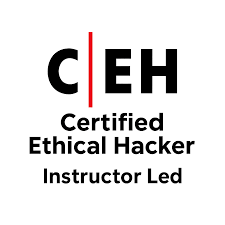Palo Alto Training – Learn Palo Alto Firewalls in 2025

In the ever-evolving world of cybersecurity, the demand for skilled professionals capable of defending digital infrastructures has never been higher. As cyberattacks grow in sophistication and frequency, organizations are actively seeking individuals who can think like hackers—but act with integrity. This is where the Certified Ethical Hacker (CEH) certification comes into play. But what is […]

In the ever-evolving world of cybersecurity, the demand for skilled professionals capable of defending digital infrastructures has never been higher. As cyberattacks grow in sophistication and frequency, organizations are actively seeking individuals who can think like hackers—but act with integrity. This is where the Certified Ethical Hacker (CEH) certification comes into play. But what is CEH certification, and why is it important for aspiring cybersecurity professionals?
This article explores everything you need to know about the CEH certification—its purpose, benefits, eligibility requirements, exam structure, career opportunities, and more.
Before diving into what is CEH certification, it’s crucial to understand the concept of ethical hacking. Ethical hackers, often called “white-hat hackers,” use the same tools and techniques as malicious hackers but do so legally and ethically. Their goal is to identify vulnerabilities in systems, networks, or applications before cybercriminals can exploit them.
Organizations employ ethical hackers to simulate cyberattacks, uncover weaknesses, and strengthen their security posture. This proactive approach helps prevent costly data breaches, ransomware attacks, and other cyber threats.
The Certified Ethical Hacker (CEH) certification is a globally recognized credential offered by the EC-Council (International Council of E-Commerce Consultants). It validates an individual’s ability to think and act like a hacker—but in a lawful, responsible way.
So, what is CEH certification in simple terms? It is a professional endorsement that proves you possess the knowledge and skills required to identify, assess, and mitigate security vulnerabilities using ethical hacking techniques.
The CEH certification serves as a benchmark for hiring managers to identify qualified security professionals capable of protecting their organization’s digital assets.
The CEH certification is designed to:
The CEH is not about encouraging hacking—rather, it is about hacking with permission to improve cybersecurity defenses.
The CEH certification is ideal for:
If you are considering a career in ethical hacking, penetration testing, or cybersecurity consulting, then understanding what is CEH certification and earning it can give your career a significant boost.
While there are no strict prerequisites, the EC-Council recommends that candidates:
Alternatively, candidates can take the official CEH training course provided by EC-Council or its accredited partners to become eligible for the exam.
The CEH exam is a rigorous test that evaluates a candidate’s knowledge of ethical hacking methodologies, tools, and practices.
The exam covers a wide range of topics, including:
In addition to the multiple-choice CEH exam (CEH ANSI), EC-Council also offers the CEH Practical—a hands-on skills-based test. It consists of real-world challenges where candidates must demonstrate their ability to identify and exploit vulnerabilities in a virtual environment.
Candidates who pass both the CEH (ANSI) and CEH Practical earn the title CEH (Master)—a highly respected designation in the cybersecurity field.
One of the most common questions is: What is CEH certification worth in the job market? The answer lies in its widespread recognition and applicability.
According to various salary surveys, CEH-certified professionals can earn between $80,000 to $130,000 annually, depending on their role and experience.
CEH often gets compared with other ethical hacking or penetration testing certifications such as:
While OSCP is more hands-on and intensive, CEH is more suitable for beginners or mid-level professionals seeking a well-rounded understanding of hacking tools and techniques. It also provides a structured path into the world of ethical hacking.
The CEH credential is valid for three years, after which professionals must earn Continuing Education (ECE) credits to maintain their certification.
To stay current, CEH holders are encouraged to:
If you’re wondering how to begin your journey after understanding what is CEH certification, here are some simple steps:
So, what is CEH certification? It’s more than just a cybersecurity credential—it’s a gateway into the world of ethical hacking. Whether you’re looking to protect systems from cybercriminals, start a new career path, or validate your existing skills, the CEH provides a strong foundation in offensive security.
With the rise in data breaches, ransomware, and phishing attacks, organizations need professionals who can think like hackers but act as guardians. The CEH certification equips you with exactly that mindset and skill set—making you an invaluable asset in today’s digital battlefield.
Get certified with industry-leading cybersecurity certifications from EC-Council, PECB, Palo Alto Networks, and more.

Learn from world-class instructors Collaborate with top professionals Advanced training...

The CEH is the world's leading cybersecurity certification, recognized by...

Onsite training course Led by an instructor Interactive sessions

Asynchronous, self-study environment Video-streaming format Flexible learning schedule
Adding {{itemName}} to cart
Added {{itemName}} to cart

